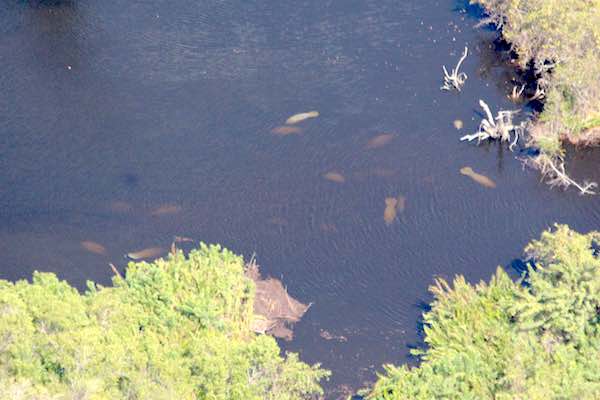SEBASTIAN – As Sebastian and Vero Beach residents manage the current cold-weather conditions, the state’s unique and treasured fish and wildlife species may need some extra care as well, according to the Florida Fish and Wildlife Conservation Commission (FWC).
“We are committed to conserving our natural resources, and are staged and ready in strategic areas throughout the state,” said FWC Executive Director Eric Sutton. “Our team of FWC staff, partners and volunteers are monitoring the status of marine species affected most by the cold, and are prepared in case rescues are needed.”
Sea Turtles
Sea turtles are one species that can be affected by cold weather. When the water temperatures drop, stunned sea turtles may float listlessly in the water on or near shore.
Although these turtles may appear to be dead, they are often still alive. It is important to report these turtles to the FWC Wildlife Alert Hotline as soon as possible.
More: Help Sea Turtle Hatchlings By Leaving Them Alone
“Our staff, partners and permitted volunteers are already working to rescue sea turtles in northwest Florida. Nearly 100 turtles have been rescued so far. We are also monitoring the Mosquito Lagoon and other areas of the state to see if sea turtles are being impacted there,” said Kipp Frohlich, director of FWC’s Division of Habitat and Species Conservation.
Manatees
The Florida manatee is another species that can be impacted by extreme cold weather. When water temperatures drop, manatees gather in warm-water habitats such as discharge canals at power plants and natural springs.
The FWC asks that boaters be extra vigilant in watching for manatees in shallow waters near the coast, both inland and coastal, and obey all posted manatee speed zone signs.
More: Florida Manatees On The Move In Sebastian, Vero Beach
“Boaters should avoid areas where large numbers of manatees are gathered,” said Gil McRae, head of FWC’s Fish and Wildlife Research Institute. “Aggregated animals should not be disturbed, as this could cause them to leave the warm-water sites that help them cope with cold temperatures.”
Sustaining adequate winter habitat for manatees remains a statewide conservation goal.
To report a dead or distressed manatee, call the FWC Wildlife Alert Hotline at 888-404-FWCC (3922).
Fish
Extended periods of unusually cold weather can kill fish outright by cold stress or make fish more susceptible to disease. Warm-water species, including the popular game fish snook, are particularly vulnerable to cold temperatures.
Affected fish may appear lethargic and may be seen at the surface where the water may be warmer from the sun.
More: Sebastian Man Brings Fish Back To Live To Avoid Arrest
The FWC monitors fish disease and mortality events around the state. Report dead and dying fish to the FWC Fish Kill Hotline at 800-636-0511.
All other distressed wildlife may be reported to the FWC Wildlife Alert Hotline at 888-404-FWCC (3922).
For additional information on fish and wildlife research, visit MyFWC.com/Research.
